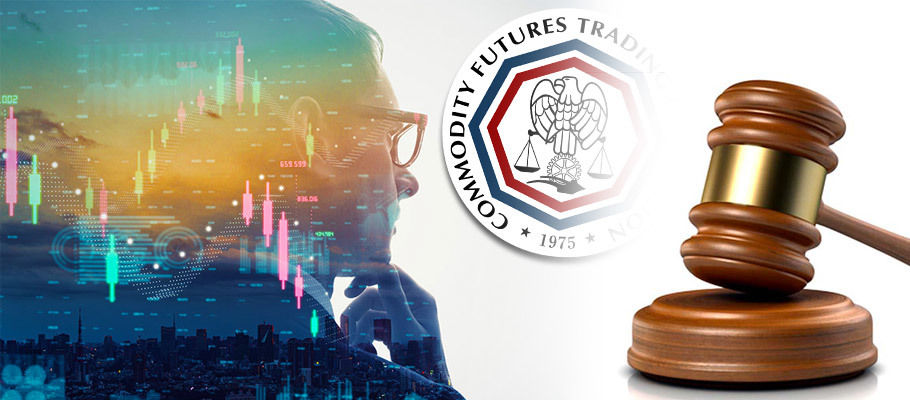
Published: July 14th, 2020
The Commodity Futures Trading Commission of the U.S. claims that James Frederick Walsh used social media platforms and email to market his skills as a forex trader extraordinaire fraudulently. The United States Commodity Futures Trading Commission (CFTC), through the Texas Western District Court, has brought charges against the self-proclaimed forex master trader, James Frederick Walsh.
According to the court papers that the press saw, Walsh has solicited the general public since September 2019. The information provided by CFTC through a press release on the agency’s website on Wednesday, July 8, shows that this is the first case where a defendant has tried to take advantage of the current health crisis.
CFTC announced that it had brought charges against Walsh of Boca Raton, Florida, for among other things, fraudulent solicitations and failing to register with the agency. According to this announcement, Walsh falsely claimed that he generates increased profits from his trading positions because of the coronavirus pandemic.
The agency stated that the case against Walsh is the first that the agency has filed alleging misconduct that has a direct link to the health crisis.
CFTC said it had heightened vigilance to root out illicit traders taking advantage of the COVID-19 pandemic to defraud the public. James McDonald, the agency’s director of enforcement, added that there is never a suitable time to prey on the fear of innocent people. For that reason, CFTC will aggressively hunt the architects of scams.
The complaint filed by CFTC alleges that since even before September 2019, Walsh lured members of the public to trade forex on their behalves. The claim adds that the alleged scammer used the leading social media platforms to market himself as a successful trader who rakes in average monthly returns of between 8% and 11% on his investment.
Walsh promised his customers a guaranteed income of 3% on their investment each month in the announcements. His adverts added that he could achieve these astronomic results because he has access to insider information about the forex's movement and that such information is legal.
The court documents claim that Walsh does not have a U.S.-based foreign currency trading account. The complaint further alleges that even after the Texas State Securities Board (SSB) sent the defendant a cease and desist letter relating to his criminal actions, he did not stop his activities. Instead, he falsely claimed that he is now earning even more returns.
The alleged scammer misled the public that the COVID-19 pandemic has exposed the forex market's vulnerabilities, causing the returns to grow exponentially even when the other financial markets are in distress.
In the adverts that Walsh run on Craigslist and YouTube, he claimed that he pays his investors up to 60% of the profits accrued while keeping just a paltry 40%. The alleged scammer charged his clients $150, which he claimed funds the cost of accessing data used to develop trading and investment strategies and for bunker charts.
In a supplementary filing, SSB claimed that Walsh fraudulently marketed a “basically risk-free” investment that takes advantage of the economic downturn. According to SSB, Walsh was soliciting clients to sign for a forex program that he claimed was “recession-proof.”
The plaints also claim that Walsh misrepresented his trading experience, skills, and results in his adverts. Besides, he failed to inform his prospective customers that he had received a cease and desist order from SSB. The CFTC court papers claim that the alleged scammer did not disclose that the orders he received from the authorities were because of his unlawful solicitation and that he had not complied with any of the directives.
In the action filed, CFTC is seeking appropriate civil monetary penalties and any ancillary appeasement the court may deem suitable. Such relief includes but may not be limited to bans on future registration and trading by the defendant, restitution, cancellation of any valid licenses, and an accounting of the defendant’s actions and earnings.
CFTC also wants the court to refund any amounts he may have received fraudulently and to do so with pre- and post-judgment interest as the court will see appropriately.
While the case against Walsh is the first of its kind that makes the most of the current pandemic, it is not isolated. The agency has preferred charges against individuals and entities who have been running fraudulent activities during the health crisis.
On June 11, the agency brought charges against Lighthouse Futures Limited and its CEO, Craig Clavin, for among other things, fraudulently soliciting commodity pool participants and misappropriating pool funds.
The same day it charged Lighthouse Futures, the agency brought charges against Silver Star FX, Silver Star Live Software LLC, limited liability companies registered in New Mexico, and Florida, respectively, and David Wayne Mayer of Roswell, Georgia.
The agency charged the three entities with fraudulent sales solicitation and failing to register and acquire the appropriate licenses from the relevant authorities.
Earlier in May, the agency charged Casper Mikkelsen, a resident of Denmark, for masterminding a $1.5 million forex fraud scheme. The agency also accused the Dane of violating the registration requirement for trading in foreign currency.
McDonald said that the various complaints reaffirm CFTC’s steadfast commitment to collaborate in parallel with foreign enforcement agencies and bodies to protect forex traders in the U.S. and everywhere else and hold fraudsters accountable.
CFTC says that the four complaints have been possible thanks to inter-agency cooperation that brought together not only U.S. agencies but also enforcement bodies from Australia, Belize, British Virgin Islands, Cyprus, Denmark, Latvia, among other countries.
CFTC has brought charges against James Frederick Walsh, a self-proclaimed master trader. In the charge sheets, the federal agency alleges that James fraudulently enlisted clients to trade forex on their behalf. James is also charged not disclosing to his clients that he had received a cease and desist notice from both SSB and CFTC.